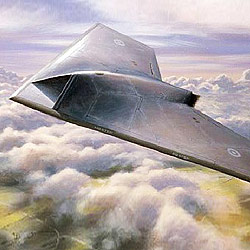(Reuters) - Shortly after sneaking across the Afghan border this week, more than 100 militants loyal to Pakistani Taliban leader Fazlullah waited patiently on a mountain for Pakistani troops to approach.
 |
| ISLAMABAD/PESHAWAR |
Several days later, the fighters released a video of what they said were the heads of 17 ambushed soldiers, along with their identification cards.
Laid across a white sheet, they were a chilling reminder of the major security threat the man once known as FM Mullah still poses to U.S. ally Pakistan, three years after the army pushed him out of the Swat Valley, a former tourist spot he terrorised.
"He is a very big problem for Pakistan," said a Western diplomat.
During his heyday, Fazlullah, who like many senior Taliban members is known as a mullah, or preacher, organised thousands of fighters who roamed picturesque Swat, imposing his radical version of Islam.
Opponents, and those deemed immoral, were publicly flogged, or even beheaded and hung in squares and at intersections. Girls' schools and government buildings were burned down.
Nowadays, Fazlullah's men control a 20-km (12-mile) stretch of the rugged and largely unpatrolled border with Pakistan from areas in Afghanistan's forbidding Nuristan province, described by nearby U.S. troops as "the dark side of the moon".
From there, Fazlullah, a burly man in his thirties with a heavy black beard, plots cross-border raids that don't kill many soldiers but agitate Pakistan's military, which thought it had defeated him during a Swat offensive in 2009.
His activities in the border area, described by U.S. President Barack Obama as the world's most dangerous place, could complicate efforts to stabilise the region before most foreign combat troops leave Afghanistan by the end of 2014.
BIG AMBITIONS
Fazlullah is a distraction for Pakistan's military, which is also fighting Hakimullah Mehsud, the leader of the Pakistan Taliban umbrella group blamed for many of the suicide bombings across the South Asian country.
Sirajuddin Ahmad, Fazlullah's spokesman and cousin, said the group's aim was to recapture Swat, and take control of Pakistan.
"The establishment of sharia (Islamic law) is our goal, and we will not rest until we achieve it. We will fight whoever stands in our way," he told Reuters by telephone from an undisclosed location in Afghanistan.
Fazlullah has slowly rebuilt his militia by securing shelter and support from Afghan militants in an area where groups form loose alliances against the United States, Afghanistan and Pakistan.
"He is extremely dangerous," said a Pakistani security official. "Fazlullah has 150 men, rocket-propelled grenades and light machine guns. You just need a small amount of men to carry out effective operations. This is a big number."
Fazlullah, once known for fiery radio sermons, was the first Taliban leader that took control of an area in Pakistan outside the unruly ethnic Pashtun tribal belt along the Afghan border.
There are no signs that he will be able to penetrate deep inside towns or cities. His men usually arrive in a big wave, attack and retreat back into Afghanistan.
But his operations have prompted Pakistan's military - one of the world's largest - to repeatedly urge the Afghan government and NATO forces to go after the militant leader.
On Monday, Pakistan protested to NATO and the Afghan military, accusing them of failing to act against militant havens in Afghanistan after the cross-border attack in which the Pakistani soldiers were killed.
Nuristan police chief Ghulamullah Nooristani says there are no signs that anyone intends to eliminate Fazlullah, even though he was creating havoc for people there, charging illegal taxes, stealing supplies from trucks and sometimes killing drivers.
"We can't attack them because they are armed with light and heavy weapons which are much better than ours," he said. "If we get support from the central government or coalition forces we will be able to destroy their strongholds."
Fazlullah's fighters usually slip across the border into Pakistan at night and take positions on high ground.
"We have patrols and vehicles moving in the area to guard the border, so they wait and try to ambush them," said a Pakistani intelligence official.
Intelligence officials say Fazlullah's men operate in the Afghan provinces of Nuristan and Kunar, and enjoy the support of hundreds of militants there.
Support goes both ways when it comes to fighting the U.S.-backed governments in Afghanistan and Pakistan.
Some militants have long-standing bonds.
"Many of us know each other from before, as we studied in the same madrassas (religious seminaries)," said a commander of a militant group in Kunar.
"When we need to conduct an operation in Afghanistan, we request help and they give us fighters. When they need to conduct an operation, we provide them with assistance as well."
Few experts expect Fazlullah to make the kind of gains he seems determined to achieve. But he is making a big impact.
"Their aim is to carry out these cross-border attacks which don't just take a toll in terms of casualties, but also have a psychological impact," said Mansur Mehsud, a director at the FATA Research Centre, an independent think tank in Islamabad.
"They reinforce the fear of the Taliban in the local population there. The people that help the government and the army would be very worried because of this, fearing revenge."
Font: (Additional reporting by Saud Mehsud in DERA ISMAIL KHAN, and Rob Taylor and Mirwais Harooni in KABUL; Editing by Robert Birsel)









